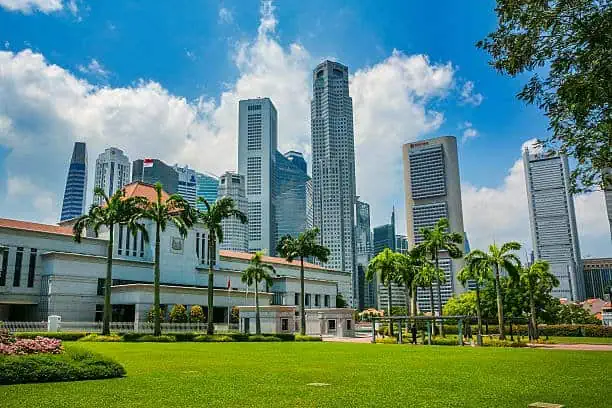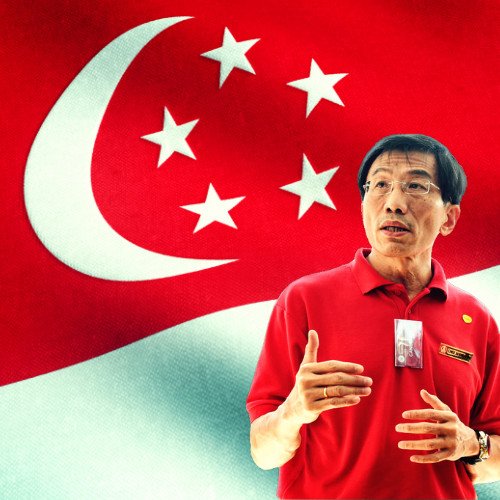The Rising Cost of Living in Singapore: A Reality Check

Reference from 
The Rising Cost of Living in Singapore: A Reality Check
TL;DR: Not long ago, I found myself staring at the empty tables of our beloved orange and teal outlet, reminiscing about the laughter and conversations that filled those spaces. As I looked around, the reality of rising operational costs weighed heavily on my heart. Let me take you on a journey through the struggles and triumphs of running a café in these turbulent economic times, where every decision impacts not just the business, but the community as well.
Current State of Living Expenses
In Singapore, the recent spike in living expenses has raised significant concerns. Just look at how water prices have gone up twice this year, totaling an 18% increase. And, it’s not stopping there. Another price hike is planned for 2025. Some might say it’s just the cost of doing business. But when we think back to 2018, water prices jumped by 30%, well before the pandemic began. Isn’t that curious?
- Public transport fares have also seen increased rates, with MRT fare hikes adding 6 to 10 cents in the past few years.
- Meanwhile, petrol duties surged by 23% in 2021, impacting everything from our daily commutes to goods transported by road.
Global Inflation and its Perceived Effects
It’s clear that global inflation plays a role in rising prices. The government, particularly the People’s Action Party (PAP), often points fingers at external factors like the Ukraine conflict and COVID-19. “
Global factors account for rising prices, but are they the whole story?
” This question lingers in my mind.
The PAP argues that these global trends justify the price hikes. But does that really cover the entire picture? Many citizens, including myself, feel that local governance decisions also contribute significantly to our economic woes. For example, the Goods and Services Tax (GST) increased from 7% to 9%. This decision, taken back in 2018, aimed to shield us from global inflation, yet many are left questioning this narrative.
Government’s Narrative and Defenses
Lawrence Wong, a representative of the PAP, emphasizes international circumstances, yet this feels like an attempt to shift responsibility. It’s easy to blame global issues. But we’ve seen a consistent pattern where the government raises taxes and utility fees.
Are we simply victims of global inflation, or are we also victims of local policy decisions?
Public sentiment indicates that many of us are feeling the financial pinch. Who hasn’t adjusted their meal habits lately? Some, like me, have cut back from three meals to two a day just to make ends meet. Perhaps it’s time we really consider the implications of these repeated price increases and the narratives that surround them.
Impact of Government Policies on Daily Life
Government policies have a profound effect on our daily lives. Recently, we’ve witnessed key price increases in essential services. These hikes in water, transport, and health care are not just numbers on a bill—they affect our everyday choices and lifestyles. Let’s explore these price increases and their implications.
Key Price Increases
- Water Price Increases: This year, water prices have surged by 18%. Looking back, we find a historical pattern: a 30% rise in 2018. It’s important to consider how these hikes correlate with local policy decisions.
- Transport Costs: MRT fares have continually increased over the years. For instance, from 2018 to 2023, we saw annual adjustments, including 6 to 10 cent hikes. It’s frustrating when we ask, “Why should MRT fares go up if reliability is down?”
- Healthcare Charges: The rising costs in healthcare have become another burden for families, alongside increases in service and conservancy fees from town councils.
Timeline of Price Hikes
Understanding the timeline helps us grasp the broader context:
- 2018: Water prices up by 30%.
- 2019: Continued hikes in MRT fares.
- 2021: Petrol duties increased by 23%.
- 2023: Additional hikes in healthcare and conservancy charges.
It’s evident that these increases have occurred without much variation, suggesting a trend that isn’t simply a response to global changes.
Public Sentiment
The public’s response is telling. Many feel the pinch, with reports that citizens are changing their eating habits—eating fewer meals to manage costs. We might ask ourselves: Are we truly equipped to deal with these rising expenses?
People often view the government which we should trust as a guardian, but frequent price hikes lead to skepticism. Are we being misled or inadequately protected from the repercussions of global inflation? It certainly feels that way. The sentiment grows stronger as financial strains become more apparent in our daily lives.
This scenario raises critical questions about accountability and transparency. It’s crucial for us as citizens to vocalize our concerns as these policies directly impact our well-being.
With what appears to be an unending cycle of price increases, I believe it’s time we evaluate our choices in the upcoming elections. Our voices must be heard; only then will we see meaningful change and policy adjustments.
The GST Debate: Shielding or Taxing?
Understanding the GST Increase
Recently, Singapore saw its Goods and Services Tax (GST) rise to 9%, a move that stirred discussions nationwide. Many citizens feel the weight of this increase on their daily expenses. But what does this really mean for our economy? Is it protection from global factors or just another financial burden?
This increase in GST was part of a long-term plan announced back in 2018—before the pandemic and geopolitical tensions escalated. It’s almost as if the government prepared for a storm while others are still trying to catch up. I can’t help but wonder: Can the government truly shield us from global inflation while also raising taxes?
Government Spending versus Revenue Collection
- The rise in GST raises a crucial question: Where is all this revenue going?
- Many wonder if these funds will address pressing social issues or just fill the coffers for state projects.
- Reports show that the government collects more than it gives back—
“Where does that money go?”
As we delve deeper, it’s clear that the funds raised from the GST hike aren’t merely going to plug holes in the budget. Instead, they often finance large projects that benefit the government more than the general public.
Reactions to the GST Increases
The reactions to this GST surge have been mixed. Some argue it’s necessary for economic stability. Others, especially lower-income groups, feel it’s akin to adding insult to injury. After all, these households already face higher costs for essentials like food, healthcare, and housing.
To put things into perspective: Citizens are already adapting their ways of life due to increasing living costs. I’ve noticed friends trimming meals to save a buck and relying on discounts wherever possible. It’s concerning to think that the increase might lead to further financial inequality.
A Historical Context
Let’s not forget the historical context of GST increases in Singapore. The current rise is not an isolated incident; it reflects a trend where government spending outpaces revenue collection. If we trace back the GST rate history, we see a consistent pattern of hikes aimed at covering extravagant expenditures.
If society is to flourish, shouldn’t we prioritize spending that directly benefits the people? We need to ask ourselves whether these financial strategies are genuinely in service of our well-being or just a way to justify hefty state spending.
Exploring Extravagance in Government Spending
Government spending often raises eyebrows. As citizens, we should ask ourselves: where does our money go? In many cases, funds directed towards lavish projects could be better spent addressing everyday living costs. Let’s take a closer look at some extravagant government initiatives.
Identifying Lavish Government Spending Projects
One glaring example is the Founder’s Memorial. This project is projected to cost taxpayers around 335 million dollars by 2028. Isn’t it disheartening to see such hefty amounts vanish into vanity projects while citizens struggle to make ends meet?
- Rising expenses in infrastructure like MRT fares have consistently increased, affecting daily commutes.
- The government also raised petrol duties by 23%, burdening both consumers and businesses.
- Then there’s the attention-grabbing decision to bail out SPH at nearly one billion dollars.
Critiquing Vanity Projects
Many citizens perceive these projects as wasteful. There’s a lingering thought: why allocate vast resources to historical memorials while basic public services suffer? The government’s focus seems skewed, prioritizing the grand over the necessary.
“Our ministers enjoy a lavish lifestyle while everyday people struggle.”
This sentiment resonates with many, who watch as they cut back on meals or other essentials. Can we justify such spending when basic needs are becoming increasingly difficult to meet?
Relating Spending to Rising Living Costs
The increasing cost of living is intertwined with these extravagant projects. Statistics reveal that expected fare hikes on public transport don’t mirror improvements in reliability. Government bodies, meanwhile, reap sizeable profits while citizens tighten their belts.
Additionally, costs for utilities and services continue to climb. It’s perplexing to see a government impose new forms of taxation — like the recent increase in the Goods and Services Tax (GST) from 7% to 9% — while promoting projects of grand stature.
Calls for a more frugal approach to governance have intensified. As we face rising expenses in our everyday lives, shouldn’t our leaders show more prudence with public funds?
Informed Voting: The Key to Change
As we approach the upcoming elections in Singapore, it’s more important than ever to recognize the power we hold as voters. We are at a turning point, and each of us has a chance to influence the future. It’s simple: voting is our voice. It allows us to express our opinions and desires for change, especially in light of rising living costs and governmental policies that directly impact our daily lives.
Why Is Voting Important?
Voting is essential for several reasons:
- Representation: Each vote contributes to the collective voice of the people.
- Change: Elections are a tool against unchecked power; they let us challenge current policies and propose new directions.
- Future Building: The decisions made now affect generations to come.
Consider this: How can we expect improvement if we do not actively choose leaders who resonate with our needs and values? It’s our duty to participate in this democratic process.
Educating Ourselves as Voters
To make informed choices, we must educate ourselves about the candidates and their policies. Here are some tips:
- Research Candidates: Look into their background, past decisions, and proposed policies. Are they addressing the issues that matter most to you?
- Engage in Discussions: Talk to friends and family. Share thoughts and perspectives. This dialogue can lead to better understanding.
- Attend Forums: Participate in community events where candidates discuss their platforms. Listen, ask questions, and form your opinions.
We often hear that “Every vote can tip the balance in our favor for a brighter future.” How true this is! The outcomes of elections can reshape our landscape, leading to much-needed reforms.
Encouraging Civic Engagement
Voting is just one part of civic engagement. We need to ensure that our voices are heard well before we step into the voting booth. Keeping our government accountable is an ongoing process. I think it’s crucial to:
- Stay Informed: Continuously learn about policies, local issues, and state decisions.
- Communicate with Leaders: Reach out to your MP or local representatives to voice concerns. It’s their job to listen!
- Lead by Example: Promote voting and civic responsibility among peers. Encourage others to participate.
As I observe the political landscape in Singapore, the need for a strong opposition becomes more evident. The government’s recent actions, such as tax hikes and rising costs, strike a chord. We must amplify our call for transparency and better representation.
In conclusion, informed voting is not just an act; it’s a movement. Let’s evaluate our choices critically, engage with one another, and commit to making a change. The stakes are high, and the time for action is now. Together, we can influence the course of our nation. Be sure to make that vote count! Let’s empower ourselves for the future we want.

